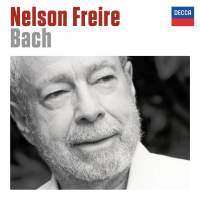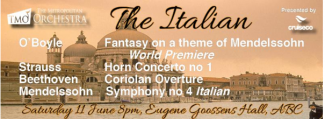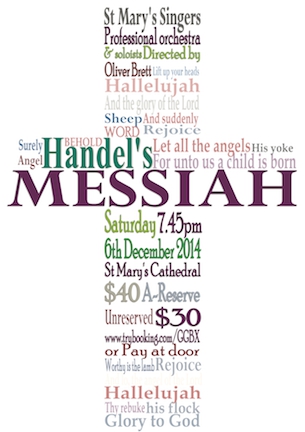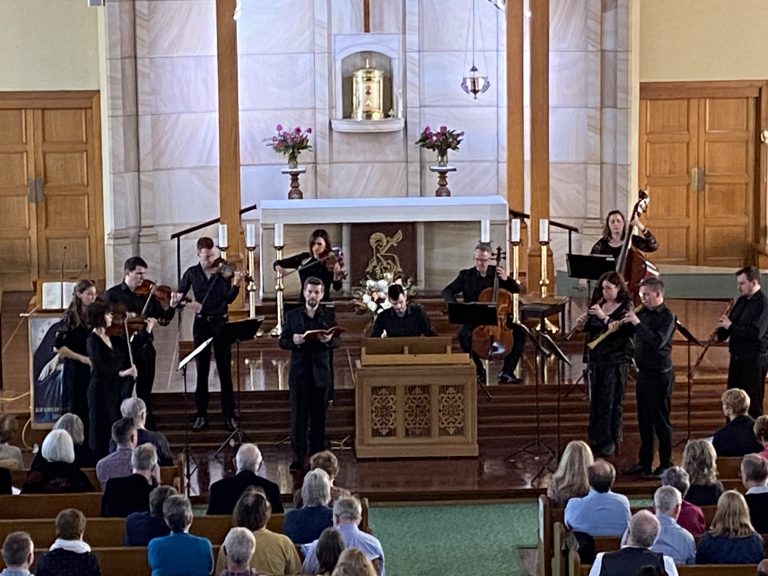Concert Review: Musica Anonymous, Zephyr Quartet And Jane Sheldon

Música Anonymous
The Zephyr Quartet and Jane Sheldon
The Utzon Room,
Sydney Opera House
17 June 2015
The ‘anonymous music’ which provided the title for this concert consists of folk and traditional music from far-flung countries, arranged by the performers themselves or by contemporary composers.
The Zephyr Quartet, based in Adelaide, comprises four classically trained string players who endeavour to expand the boundaries of the normal quartet repertoire by working with performers in other fields, such as theatre, dance and film. For this concert they were joined by Sydney-born soprano Jane Sheldon. Currently based in New York, Sheldon specialises in 20th and 21st century chamber music and also often works in film and theatre productions.
Much traditional and folk music deals with unhappy love or the death of loved ones and so it proved to be in this programme. There was a pervasive atmosphere of wistful longing and sad contemplation. The music was certainly beautiful, but it mostly inhabited the restricted world of reflective melancholy, for which the intimacy of the Utzon Room provided an excellently informal venue.
The concert opened with four widely varied lullabies from the Torres Strait, Romania, Spain and Israel. These pieces immediately indicated that the eclectic programme would be sourced from a broad geographic area. It also signaled the wide range of languages in which Sheldon would sing: later she added Finnish, Swedish and Icelandic.
The musical horizons were further broadened by instrumental versions of two Persian folksongs by the Iranian composer Reza Vali. These introduced micro-tones which were robustly delivered by the quartet and also provided a vehicle for some impassioned playing by the cellist Hilary Kleinig.
Each half of the concert concluded with a bracket of traditional songs arranged by modern composers. In the first half Andrew Ford’s Tales of the Supernatural consisted of five songs which were underpinned by agitated, even abrasive lines from the string quartet that underscored the drama inherent in the texts.
The second half of the programme opened with three dances from Finland, Macedonia and Mexico in which the members of the quartet showed a great affinity with the diverse styles of folk dances, especially traditional fiddle playing. This part of the programme also included a love song from the Mexican Yucatan peninsula, Peregrina, in which Jane Sheldon effectively called to mind the style of Hispanic folk songs made familiar some years ago by Victoria de los Angeles. The programme also included The Dying Stockman, popularised by Rolf Harris and then concluded with settings of three Irish songs by the Adelaide composer Quentin Grant.
Throughout the concert the performances were convincingly presented in the varying styles of the distinctive folksong traditions, with Sheldon adopting a vocal style appropriate to folk music. The vocal lines remained mostly in the lower and middle soprano ranges with only the Grant arrangements requiring Sheldon to move into the upper part of her register.
The Zephyr Quartet sounded very much at home in these arrangements – many of which were in fact made by members of the group. Much of the time they were required simply to provide a cushion of atmospheric support for the voice, but they were also called upon to use a wide range of performance techniques, including percussive effects and judicious withholding of vibrato to imitate traditional fiddle playing.
This was an intriguing recital of unfamiliar repertoire which ventured far from the normal paths of the usual concert repertoire. It was music which is clearly much-loved by the performers who delivered it convincingly and in an array of styles appropriate to the wide range of traditional music which was covered.
Larry Turner for SoundsLikeSydney©
Larry Turner has been singing in choirs for many years – both in Sydney and London. He is an avid attender of operas and concerts, with an emphasis on vocal music. He particularly enjoys music from both the great a capella period and the baroque – especially the lesser-known works of Bach and Handel. He has written programme notes for Sydney Philharmonia, the Intervarsity Choral Festival and the Sydneian Bach Choir and is currently part of a team researching the history of Sydney Philharmonia for its forthcoming centenary.






